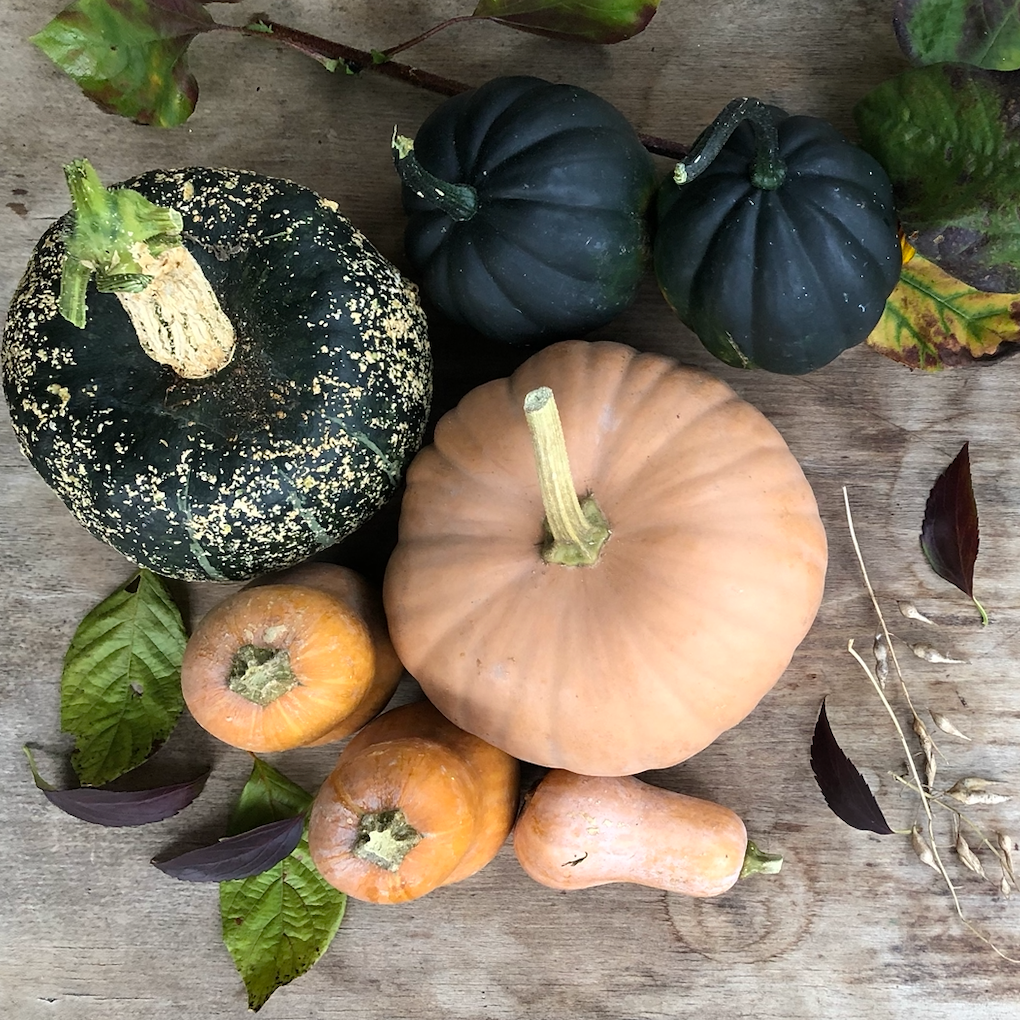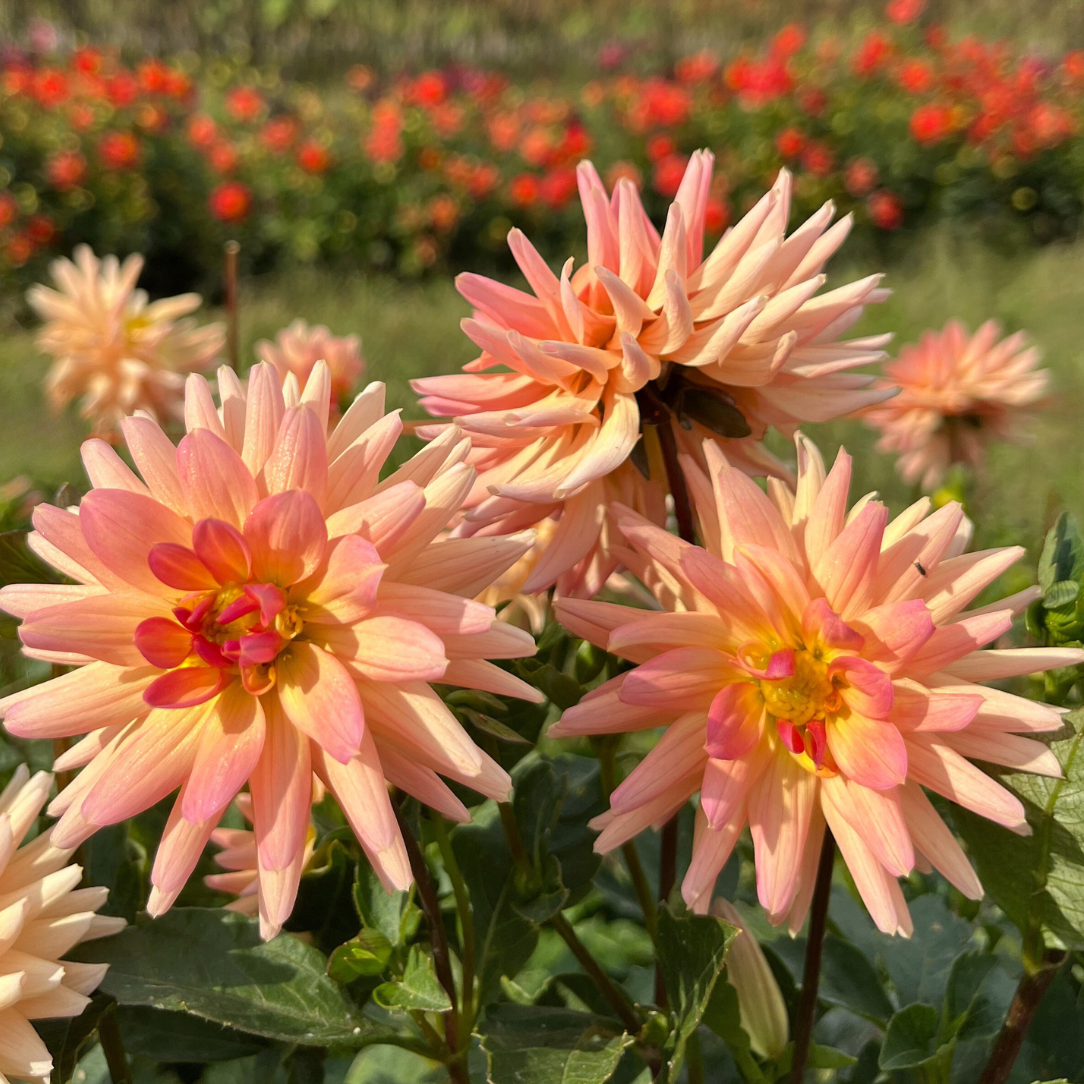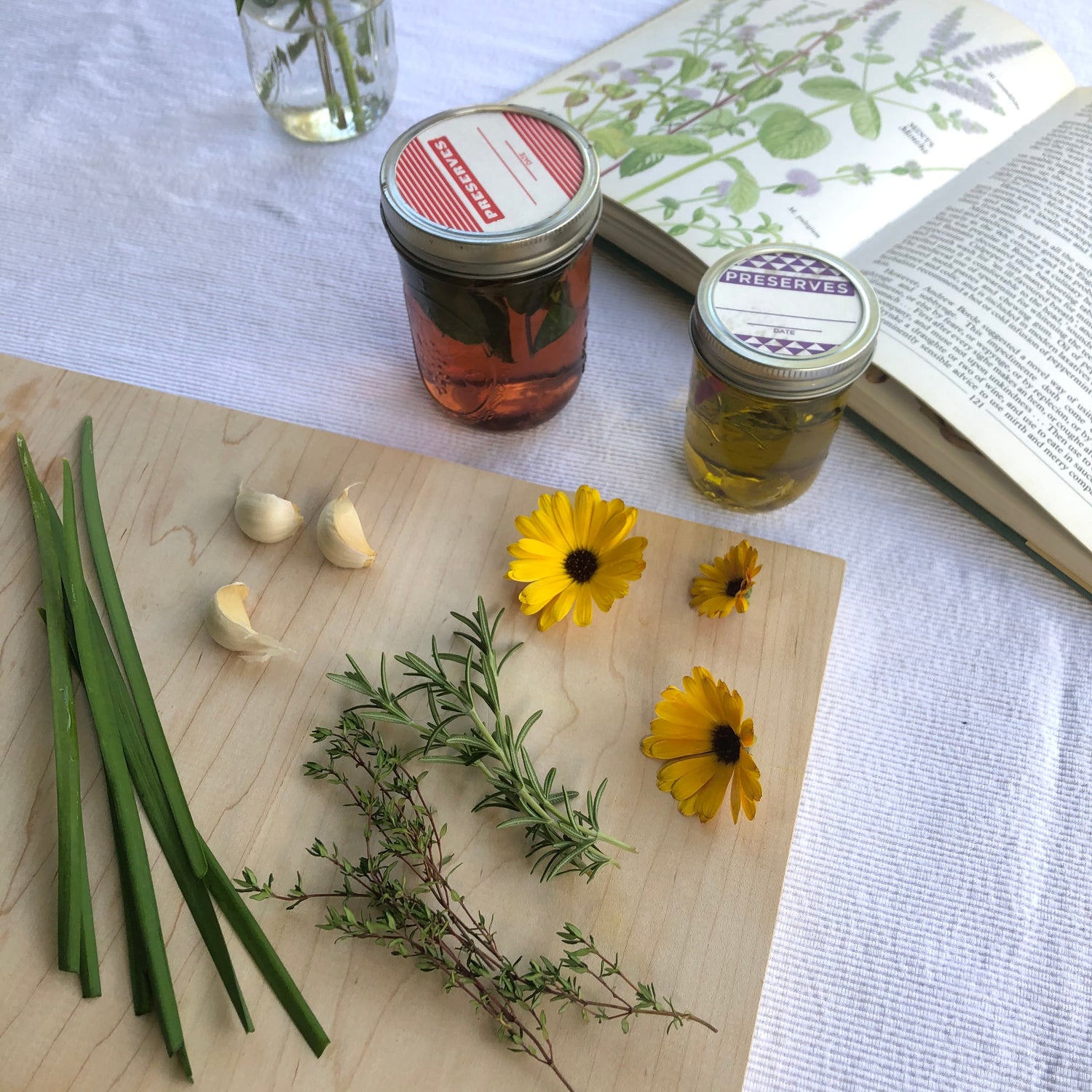 Farm Tournant team Manda Martin and Zach Pickens
Farm Tournant team Manda Martin and Zach PickensFarm Tournant is a three acre no-spray, (non-certified) organic farm in Montgomery, NY. They produce vegetables, herbs, and edible flowers in collaboration with chefs in New York City and the Hudson Valley. The collaboration doesn't just extend to their harvests. They develop their crop plan with the guidance of the chefs they work with and harvest crops to their specifications. Owner Zach Pickens says, "Our small number of clients allows us this flexibility of custom orders and special requests. This is the driving force of our farm. After all, our farm name is inspired by the Chef Tournant-- the chef in the classical French kitchen that can work any station at any time."
Farm Tournant also produces a small number of seeds crops for unique varieties and participate in a number of variety trials, including the Kitchen Cultivars program led by Seedshed and Glynwood. Seed production is a very important part of the farm. We asked Zach to talk about the seed to plate bridge his farm creates.

You have such a unique perspective on food and agriculture, how did you arrive at this place?
I think it's a combination of having been in the restaurant industry almost my entire life and generally being a curious person.
 Chef Bryan Hunt, culinary director of Riverpark Farm, and the Riverpack crew with Zach, far left.
Chef Bryan Hunt, culinary director of Riverpark Farm, and the Riverpack crew with Zach, far left.I grew up in restaurants that my dad owned and did everything from cooking to entering invoices in Quickbooks. And I got into farming specifically to grow produce for chefs in New York City--most notably running Riverpark Farm in New York City for the chefs at Riverpark restaurant from 2011 to 2016. I enjoy working with chefs (which any farmer will tell you is not always easy) and find their knowledge in the kitchen to be inspiring. We can put different plant parts in front of them that they may know how to deal with better than the home chef. They can also have insights into what makes certain flavors or varieties great that serve as guideposts for us in the fields.
And in general, experimentation and creativity drive me as a farmer. Farming can be boring at times, and really could be monotonous if you wanted it to be.
 The line up of mini lettuce heads Zach grows for chefs.
The line up of mini lettuce heads Zach grows for chefs.Every year, though, we do new variety trials, try new crops all together, and try growing the crops we already love differently either with the kitchen in mind or to increase our productivity on the farm. When I was farming at Riverpark I always said urban farming was inspiring to me because growing food in the city is just one big problem in need of a creative solution-- it's a puzzle that has to be solved. Little did I know how true that would be on a 'normal' farm as well.
We also know you as a seed producer, can you talk more about how producing seed fits into your operation?
This goes hand in hand with my interest in rare/uncommon crops. There are some crops that don't have a commercial source for seed that we would not be able to grow if I didn't produce seeds myself. So producing seed is truly an integral part of our business.
But more broadly, knowing how to produce seed leads me to look at our farm differently. I'm not just buying seed, putting it in the ground, and selling the results. I'm looking for unique traits in the varieties we are growing. I'm cross pollinating some crops to see what happens in subsequent generations. I'm producing seed for varieties that I love that are being phased out by the bigger seed companies. It allows me to have a much broader view of our operation and put some truly unique products in front of our chefs.
 Tie Dye Basil, a breeding project at Farm Tournant.
Tie Dye Basil, a breeding project at Farm Tournant.What kinds of traits do you look for most in the varieties you seek?
We usually let our chef clients weigh in on flavor evaluations-- they're the ones with the professional palates. But I know what I like to eat and find it way easier to sell crops that I enjoy eating myself.
And of course flavor is king, but if a variety is a dud in the field, or doesn't like the weather in the Northeast, then that will change our attitude towards growing it. We might have to charge more for an under-performing crop or just leave it off the list altogether.
We're also always looking for unique variety traits, like fruity seasoning peppers, or black-fleshed tomatoes.
 Delfino, a unique cilantro grown by Farm Tournant
Delfino, a unique cilantro grown by Farm TournantWhat are your favorite varieties / or what are you most excited to try?
I tend to actually get most excited by off-types and varieties that aren't perfectly uniform. I'm fascinated by the diversity of plants even within a variety and love finding something new. For this reason, I love growing chicories, like Castelfranco radicchio, that tend to not always grow true to type. Anytime you see a variation in a genetic line, that is an opportunity to develop a whole new variety!
For my personal taste, though, I love ground cherries and hot chiles. You will always find at least 10 varieties of hot chiles and one big bushy hedge row of ground cherries in our fields, whether anyone is buying them or not.
What are your top 3 "growing for flavor"tips for growers of any size operation?
 Zach offers the entire fava plant to chefs.
Zach offers the entire fava plant to chefs.1. Make sure you have a good partner that is willing to buy your product. This has to be the most important part if we're talking about a commercial farming operation-- if you can't sell it you might as well just keep it in the home garden. Many of the best tasting varieties don't have the best traits for harvest, packing, or processing, so we're up front about that with our chef clients. You can also talk to your clients about buying produce out of your trial plots, sell mixes of trial varieties, etc.
2. Trial, trial, trial. You don't know what it tastes like if you don't grow it. I've found that trialing multiple varieties and trying them all side by side is the best way to find the winners. We evaluate our trials for vigor, maturity dates, and yield in addition to flavor. Even trials of the same variety sourced from different seed companies (like the watermelon radish trial we did for Kitchen Cultivars in 2017) can help you further zoom in on the best crops.
3. Watch the water! Overwatering many crops can lead to literally watering down the flavor. Tomatoes would be the best example of this-- we rarely irrigate our tomatoes after they start setting fruit in July. Hot chiles also tend to be hotter (something I love) if you go light on the water.

Zach is one of our seed partners and shares some of his unique varieties with us. For our 2019 catalog, this includes one extremely rare variety, Cesare's Canestrino di Lucca Tomato, and the gorgeous Marshmallow Nicotiana.





